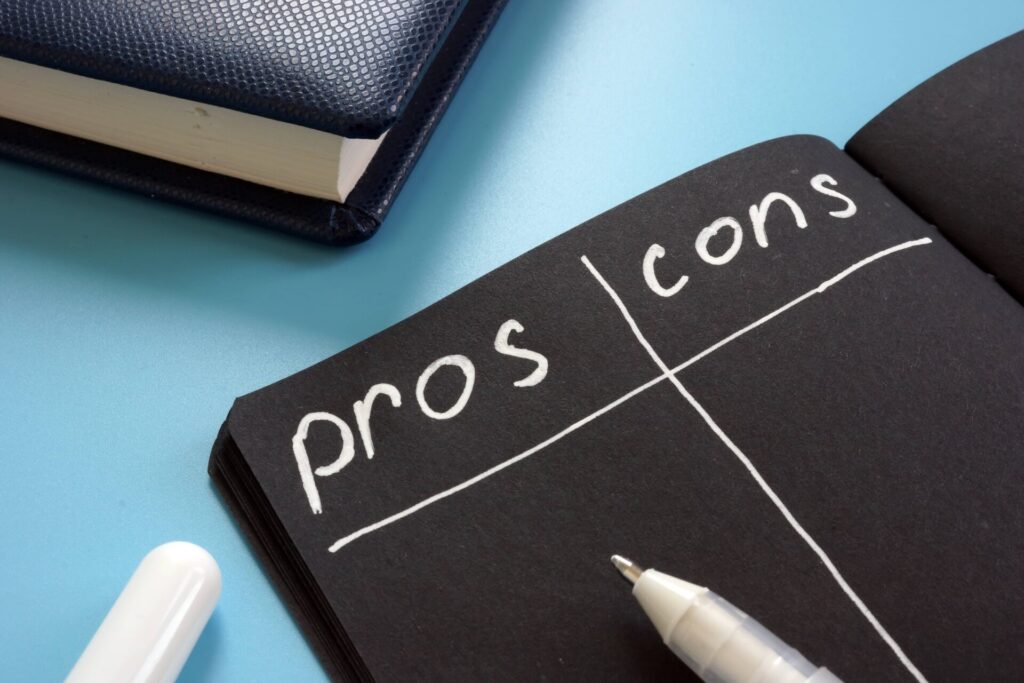Renting vs. Buying a Home: Making the Right Choice for Your Lifestyle
Imagine a game of Monopoly where you’re faced with the decision to buy or rent properties. In the real world, this choice looms large for many individuals and families. It’s a common financial crossroads where the stakes are high, and the outcomes can vary greatly. In this guide, we’ll explore the ins and outs of renting vs. buying a home, drawing from personal experiences and original research to help you make an informed decision.
Personal Anecdote
I’ve had the good fortune to live in several different cities, so I’ve had both the benefits and drawbacks of renting apartments and owning a house. Just like a pendulum swinging between two extremes, my housing journey has been a fascinating ride. But enough about me—let’s dive into the topic at hand.
The Pros of Renting

Flexibility and Mobility
Shorter Lease Commitments
Short-term lease agreements, which can last anywhere from a month to a year, are frequently associated with renting a property. This flexibility is particularly beneficial for those with unpredictable or evolving life situations. For example, when I took a temporary job in a new city, renting made it easy for me to pack up and move without the stress of selling a home.
Easier to Relocate
Renters enjoy the freedom to relocate without being tied down to a specific property. This mobility can be a game-changer for those who love to explore new opportunities or have wanderlust. As someone who’s experienced several cross-country moves, I can attest to the ease of relocating as a renter compared to the more involved process of selling a home.
Lower Upfront Costs
No Down Payment
Renting requires no down payment, which can be a significant financial relief for those without a hefty sum saved up. In comparison, a down payment of 3.5% to 20% of the purchase price is often required when buying a home. That’s a massive chunk of change that could be used for other financial goals or emergencies.
Lower Initial Expenses
When renting, your initial expenses are limited to a security deposit, application fee, and first month’s rent. But, buying a home comes with a lot of up-front expenses, including closing costs, inspection fees, and appraisal fees. Renting is a more cost-effective choice in the short run because these costs can build up quickly.
Fewer Responsibilities
Landlord Handles Repairs
One of the underrated perks of renting is having a landlord responsible for property maintenance and repairs. As a renter, I’ve appreciated the convenience of calling my landlord to fix a leaky faucet or a broken appliance. Homeowners, however, must tackle these issues themselves or hire a professional, which can be costly and time-consuming.
No Property Taxes
Renters are spared the burden of paying property taxes, which can be a significant expense for homeowners. While some may argue that property taxes are baked into rental prices, renters are not directly responsible for these payments. As a homeowner, I’ve felt the sting of hefty property tax bills, making me envious of my renting friends.
Sharing Amenities
Access to Shared Facilities (e.g. Gym, Pool)
Many rental properties, especially apartment complexes, offer shared amenities such as gyms, pools, and recreational areas. These facilities can significantly enhance your living experience without the hefty price tag associated with a private gym membership or the maintenance of a personal pool. As someone who has enjoyed countless hours in a rental community’s fitness center, I can vouch for the convenience and cost savings that come with shared amenities.
Reduced Costs for Amenities
While homeowners may need to invest in and maintain their amenities, renters can enjoy these perks at a fraction of the cost. The expenses associated with shared amenities are typically included in the rental price, meaning renters can access them without worrying about the financial burden of ownership.
Renters’ Insurance
Lower Cost Compared to Homeowners’ Insurance
Renters’ insurance tends to be more affordable than homeowners’ insurance, as it only covers personal belongings and liability, not the structure itself. This lower cost can result in significant savings, allowing renters to allocate funds to other financial priorities.
Covers Personal Property and Liability
Despite its lower cost, renters’ insurance provides valuable protection for personal belongings and potential liability claims. Renters’ insurance can assist in defraying the expenses of replacing lost or damaged property in the event of theft, fire, or other catastrophes. Additionally, renters’ insurance can provide protection against liability claims resulting from accidents that occur within the rental property.
No Risk of Property Depreciation
Not Exposed to Market Fluctuations
Renters are not exposed to the risks associated with market fluctuations, as they don’t own the property. This means that a downturn in the housing market won’t impact their financial well-being, providing peace of mind during uncertain economic times. As a homeowner, I’ve experienced the anxiety that comes with watching the housing market closely, something renters can avoid.
No Loss in Property Value
While homeowners face the potential for loss in property value due to market fluctuations, renters don’t have to worry about depreciation. This absence of risk can be particularly appealing for those who are wary of the unpredictability of the housing market. For those with a more risk-averse mindset, renting can provide a sense of financial stability that homeownership may not offer.
The Cons of Renting
Limited Control
Restrictions on Customization
Renting often comes with strict rules and limitations, making it difficult for tenants to personalize their living space. As someone who’s rented multiple apartments, I’ve had to navigate the delicate balance between creating a cozy home and adhering to rental restrictions. Unlike homeowners who can paint walls, change fixtures, or renovate at will, renters must often accept the property as-is or risk losing their security deposit.
Rent Increases
Renters may face annual rent increases, making their housing costs unpredictable and subject to market conditions. These fluctuations can be frustrating, as renters have little control over such changes. As a former renter, I’ve felt the pinch of rent increases that seemed unreasonable, especially when the rental property didn’t offer any additional improvements or amenities in return.
No Equity
No Long-term Investment Value
The absence of long-term investment value is one of renting’s biggest disadvantages. While homeowners build equity with each mortgage payment, renters don’t have the opportunity to invest in an asset that could appreciate over time. I’ve watched friends and family members benefit from the growth in their property’s value, making me keenly aware of the missed opportunity for wealth-building as a renter.
No Tax Benefits
Homeowners enjoy tax benefits such as mortgage interest deductions and property tax deductions, which can provide substantial savings. Renters, however, do not have access to these perks, potentially making homeownership more financially appealing in the long run. As a homeowner, I’ve found these tax benefits to be a silver lining in the otherwise expensive world of property ownership.
Feeling of Impermanence
Difficulty Making it Feel Like “Home”
Renters may find it difficult to fully make their place feel like “home” because of the transient nature of renting, which can evoke a sense of impermanence. Since it can be difficult to establish a sense of stability and belonging in a rental property, this emotional aspect might have an impact on how satisfied a renter is with their living arrangement overall. I can attest to the emotional cost of residing in a location that feels more like a pit stop than a long-term sanctuary because I have personally experienced this.
Potential for Eviction
Renters are at the mercy of their landlords, who have the right to evict them if they decide to sell or use the property for another reason. This lack of control and housing security can be unsettling, as it’s challenging to plan for the future when your living situation is uncertain. During my renting days, the possibility of eviction always lurked in the back of my mind, creating an undercurrent of unease that homeowners generally don’t have to contend with.
Potential Unresponsive Landlords
Delayed or Neglected Maintenance
Renters may encounter unresponsive landlords who delay or neglect property maintenance, leading to frustration and potential living discomfort. As someone who has dealt with a landlord who dragged their feet on essential repairs, I know how infuriating it can be to feel like your concerns are not being addressed promptly.
Limited Ability to Address Issues
With an unresponsive landlord, renters have limited options to address issues within their rental property. Unlike homeowners who can take matters into their own hands, renters must rely on their landlord to handle problems and may face restrictions in taking any action themselves. This lack of control can leave renters feeling powerless in their living situation.
No Financial Incentives for Home Improvements
Investment Benefits Landlord, Not Renter
Renters who make improvements to their rental property ultimately increase the property’s value, benefiting the landlord rather than themselves. This lack of financial incentives can discourage renters from investing in upgrades or enhancements to their living space. As a renter, I’ve hesitated to invest in improvements knowing that I wouldn’t see any long-term financial benefits.
Limited Motivation for Upgrades
Without the promise of financial returns, renters may have little motivation to make home improvements. This reluctance can lead to a less enjoyable living experience, as renters may tolerate outdated fixtures, appliances, or design elements simply because they don’t see the value in investing their time and money into a property they don’t own.
Limited Housing Security
Subject to Lease Renewals
Renters’ housing security is often dependent on lease renewals, which can create uncertainty and stress. As someone who has waited anxiously for a lease renewal offer, I understand the precariousness of this situation. Renters’ lives become more uncertain every time their lease expires since they must either sign a new one or look for another housing.
Landlord Could Sell the Property
Renters face the risk of their landlord selling the property, which could force them to relocate with little notice. Renters must continuously be ready for the prospect of having to locate a new home, which can be disconcerting given the lack of control they have over their living arrangements. Since I was a tenant, I was constantly concerned that my landlord may sell the property because it could at any moment cause my living conditions to change.
The Pros of Buying

Building Equity
Long-term Investment
Buying a home is a long-term investment that allows homeowners to build equity over time. As mortgage payments chip away at the principal, the homeowner’s stake in the property increases, creating a valuable asset. From personal experience, watching my home’s value grow over time has provided a sense of financial accomplishment and security.
Forced Savings through Mortgage Payments
Mortgage payments act as a form of forced savings, as homeowners contribute to their equity with each payment. This can be particularly beneficial for those who struggle with disciplined saving, as it establishes a consistent, long-term financial commitment. As a homeowner, I’ve appreciated the structure that mortgage payments provide, ensuring that I’m consistently investing in my financial future.
Stability and Control
Fixed Mortgage Rates
Homeowners with fixed-rate mortgages enjoy predictable monthly payments, providing stability and peace of mind. Unlike renters, who may face annual rent increases, homeowners can rely on consistent housing costs that won’t fluctuate with market conditions. As a homeowner, I’ve found solace in the stability that comes with knowing my mortgage payment won’t change unexpectedly.
Ability to Customize and Personalize
Owning a home provides the freedom to customize and personalize the property to suit individual tastes and preferences. Homeowners can renovate, paint, or make structural changes without seeking permission from a landlord. As a homeowner, I’ve relished the opportunity to create a space that reflects my personality and style, something that was challenging to achieve as a renter.
Tax Benefits
Mortgage Interest Deductions
Homeowners can take advantage of tax deductions on mortgage interest, providing substantial savings on their annual tax bill. This benefit can make homeownership more financially appealing, especially for those in higher tax brackets. As a homeowner, I’ve found the mortgage interest deduction to be a valuable financial perk that helps offset some of the costs associated with property ownership.
Property Tax Deductions
Homeowners can deduct property taxes in addition to mortgage interest on their federal income tax return. This tax benefit can result in significant savings, reducing the cost of owning. I can attest to the relief that comes with knowing that I can write off a portion of those expenses on my taxes as someone who has paid property taxes as a homeowner.
Potential for Rental Income
Ability to Rent Out Part of the Property
The possibility of earning rental income is one benefit of property ownership that is frequently disregarded. In order to help defray the costs of homeownership, homeowners have the option of renting out a portion of their home, such as a basement apartment or an extra bedroom. One’s total financial status may be significantly impacted by this new source of income.
Additional Source of Income
In addition to assisting with mortgage payments and other home-related costs, generating rental income can also improve one’s overall financial security. I can vouch for the benefit it can have on one’s financial objectives and long-term wealth-building efforts as a homeowner who has taken advantage of rental income opportunities.
The Cons of Buying
High Upfront Costs
Down Payment
One of the most significant barriers to homeownership is the sizable down payment required to purchase a property. This financial hurdle can be challenging for many potential buyers, especially first-time homeowners or those without substantial savings. As a homeowner, I remember the stress and planning involved in saving for a down payment, which can be a daunting prospect for many.
Closing Costs
Prospective homeowners must also deal with closing costs, which can run into the thousands of dollars, in addition to the down payment. These fees, which also include charges for title insurance, appraisal fees, and origination fees, can significantly increase the upfront cost of homeownership. I can attest to the price shock that might accompany these extra costs as someone who has navigated the home-buying process.
Ongoing Maintenance and Repairs
Homeowner Responsibility
Homeowners are solely responsible for maintaining and repairing their property, which can be both time-consuming and costly. From routine tasks like lawn care and gutter cleaning to more significant projects like roof replacements or HVAC repairs, homeowners must be prepared for ongoing expenses and labor. As a homeowner, I’ve experienced the never-ending list of maintenance tasks and expenses that come with property ownership.
Unexpected Expenses
Maintenance and repair costs can be unpredictable, with unexpected issues cropping up at the most inconvenient times. These unexpected expenses can strain a homeowner’s budget and create financial stress. As a homeowner, I’ve faced my fair share of surprise repairs, making me all too familiar with the financial burden they can impose.
Commitment and Limited Mobility
Difficult to Relocate Quickly
Homeownership can limit mobility, making it difficult to relocate quickly for personal or professional reasons. Selling a home can be a time-consuming and costly process, and homeowners may face financial losses if they need to sell during a market downturn. As a homeowner, I’ve felt the constraints of limited mobility, knowing that any potential move would require careful planning and coordination.
Dependent on Housing Market for Selling
The ease and profitability of selling a home are dependent on the state of the housing market, which can be unpredictable. Homeowners may find themselves unable to sell their property or forced to sell at a loss if the market is unfavorable. This reliance on external factors can create uncertainty and stress for homeowners looking to sell their property, something I’ve experienced during periods of housing market instability.
Renting vs. Buying: A Cost Comparison

Monthly Expenses
Rent vs. Mortgage Payments
When comparing the costs of renting and buying, one must consider the differences in monthly expenses. Rent payments are typically straightforward, covering the cost of occupying the property. Mortgage payments, on the other hand, consist of principal, interest, property taxes, and possibly homeowners’ insurance. While mortgage payments may initially be higher than rent payments, over time, they can become more affordable as rents increase. As someone who has experienced both renting and owning, I’ve noticed the shifting balance of costs over time.
Utilities and Maintenance Costs
Another aspect to consider when comparing renting and buying is the cost of utilities and maintenance. Renters may have some or all of their utilities included in their monthly rent, while homeowners are generally responsible for all utility costs. Additionally, homeowners must budget for ongoing maintenance and repair expenses, which renters typically don’t have to worry about. Weighing these costs is crucial when deciding whether to rent or buy, as they can significantly impact one’s overall housing expenses.
Long-term Financial Impact
Appreciation vs. Rent Increases
In the long run, homeownership can offer financial advantages through property appreciation. As property values increase, homeowners can build wealth through the equity in their homes. Conversely, renters may face rent increases over time, with no opportunity to build equity. As someone who has transitioned from renting to owning, I’ve experienced the financial benefits of property appreciation firsthand.
Equity vs. Flexibility
When considering the long-term financial impact of renting versus buying, one must balance the desire for equity with the need for flexibility. While homeownership provides the opportunity to build equity, it also requires a long-term commitment and financial responsibility. Renting offers more flexibility and fewer financial obligations, but at the cost of missing out on potential equity growth. As a financial blogger who has navigated both renting and owning, I can attest to the importance of carefully considering one’s priorities and financial goals when deciding between these two options.
The Role of Market Conditions
Local Housing Market Trends
Renting in a Buyer’s Market
Understanding local housing market trends is crucial when deciding between renting and buying. In a buyer’s market, where there are many homes for sale and pricing are favourable, prospective homeowners may discover that it is more cost-effective to buy than to rent. Due to increasing landlord competition, tenants can still benefit from lower rent costs. As a financial blogger, I’ve seen the advantages of renting in a buyer’s market since it can provide you the chance to save money and strengthen your financial position before you buy a house.
Buying in a Renter’s Market
In contrast, potential purchasers can find it more profitable to buy a home in a renter’s market where renting costs are high and property options are few. This can provide stability and long-term investment potential in a market where renting is less attractive. As a homeowner who has navigated a renter’s market, I can attest to the benefits of buying in such conditions, as it can lead to a more favorable financial outcome in the long run.
Timing Considerations
Interest Rates
The cost of purchasing a home is significantly influenced by interest rates. Homeownership is more appealing when interest rates are low because mortgage payments are more manageable. On the other hand, renting could seem more enticing when interest rates are high due to the higher cost of borrowing. I’ve regularly followed interest rates over the years, so I can attest to the influence they can have on whether a person chooses to rent or buy.
Seasonal Fluctuations
Seasonal fluctuations in the housing market can also influence the decision to rent or buy. Traditionally, the spring and summer months see increased activity in the real estate market, with more properties available for both renting and buying. Conversely, the fall and winter months typically see a slowdown in the market, with fewer options available. As a financial blogger, I’ve found that understanding these seasonal trends can help potential renters and buyers make more informed decisions about when to enter the market and what type of housing option to pursue.
Tools and Resources for Decision-Making

Rent vs. Buy Calculators
Online Resources to Compare Costs
There are numerous online rent vs. buy calculators that can help potential renters and buyers compare the costs of each option based on their specific circumstances. These calculators take into account factors such as home price, down payment, mortgage interest rate, and rental costs to provide a comprehensive comparison. As a financial blogger, I’ve found these calculators to be invaluable tools when exploring the financial implications of renting and buying.
Factors to Consider
When using rent vs. buy calculators, it’s essential to consider factors such as anticipated length of stay, expected rent increases, property appreciation, and tax implications. These factors can significantly impact the overall financial outcome of each option and should be carefully weighed when making a decision. As someone who has navigated both renting and owning, I’ve learned the importance of considering these factors in the decision-making process.
Seeking Professional Advice
Financial Advisors
When selecting between renting and buying, consulting with a financial counsellor might offer insightful advice. Financial advisors can assist clients in analysing their financial objectives, assessing their present financial condition, and selecting the solution that best meets their needs. As a financial blogger, I have witnessed the advantages of consulting a professional before making this important choice.
Real Estate Agents
Real estate agents can also provide valuable guidance and expertise when deciding between renting and buying. They have extensive knowledge of local market conditions and can offer advice on the best opportunities available for each option. I can vouch for the importance real estate agents provide to the decision-making process having worked directly with them.
Personal Experience and Considerations
Share Personal Anecdotes of Renting and Buying Experiences
As a financial blogger who has experienced both renting and buying, I’ve faced the unique challenges and benefits associated with each option. From the flexibility and convenience of renting to the stability and investment potential of homeownership, my personal experiences have shaped my understanding of the factors to consider when making this important decision.
Discuss Factors to Consider When Making the Decision
Ultimately, the choice between renting and buying comes down to personal preferences, financial circumstances, and long-term goals. It’s essential to weigh the pros and cons of each option, considering factors such as flexibility, financial commitment, and the potential for building wealth. By taking the time to understand the implications of each choice, individuals can make an informed decision that best aligns with their unique needs and aspirations.
Renting vs. Buying: Weighing Your Options and Making the Best Decision
The decision to rent or buy a home is a deeply personal one, influenced by factors such as financial circumstances, personal preferences, and long-term goals. In this article, we’ve explored the pros and cons of each option, examined the impact of market conditions, and discussed valuable tools and resources for decision-making.
As you weigh your options, it’s essential to engage in self-reflection and consider which choice best aligns with your unique needs and aspirations. Keep in mind that the right decision for you may change over time, as your financial situation, lifestyle, and priorities evolve.
Remember that there is no one-size-fits-all answer to the question of renting vs. buying. By carefully considering the various factors at play and seeking professional advice when needed, you can make an informed decision that sets you up for long-term success and satisfaction in your living situation.
